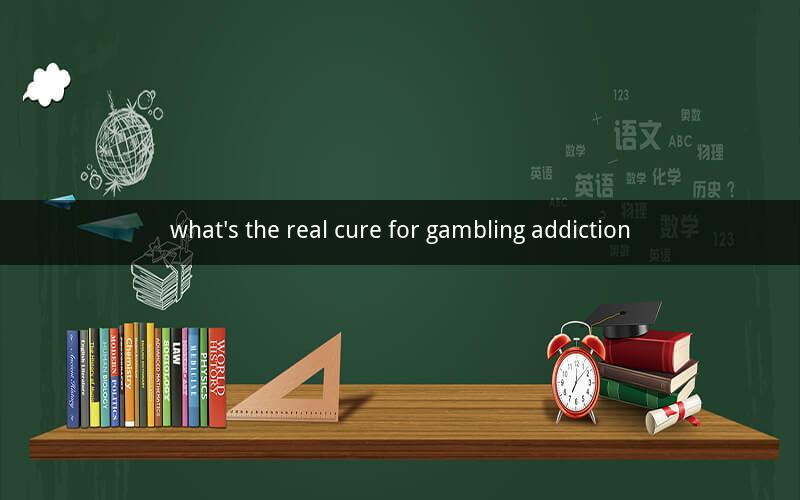
Table of Contents
1. Understanding Gambling Addiction
2. The Psychological Aspect of Gambling Addiction
3. The Social and Economic Impact of Gambling Addiction
4. Traditional Treatment Methods for Gambling Addiction
5. Alternative Therapies for Gambling Addiction
6. Support Systems and Community Resources
7. The Role of Technology in Treating Gambling Addiction
8. Case Studies and Success Stories
9. Preventing and Reducing Gambling Addiction
10. Conclusion
1. Understanding Gambling Addiction
Gambling addiction, also known as compulsive gambling, is a behavioral disorder characterized by an inability to control the urge to gamble, despite negative consequences. It is a complex condition that affects individuals of all ages, backgrounds, and socioeconomic status. Understanding the nature of gambling addiction is crucial in identifying effective treatment strategies.
2. The Psychological Aspect of Gambling Addiction
The psychological aspect of gambling addiction involves a variety of factors, including the release of dopamine in the brain, which creates a sense of pleasure and reward. This can lead to a cycle of increased gambling behavior, as individuals seek to recreate the feelings of euphoria. Additionally, psychological factors such as low self-esteem, depression, and anxiety can contribute to the development of gambling addiction.
3. The Social and Economic Impact of Gambling Addiction
Gambling addiction has significant social and economic consequences. It can lead to financial ruin, strained relationships, and even legal problems. The impact on families and communities can be profound, as the addiction affects not only the individual but also those around them.
4. Traditional Treatment Methods for Gambling Addiction
Traditional treatment methods for gambling addiction often involve cognitive-behavioral therapy (CBT), which helps individuals identify and change negative thought patterns and behaviors. Other treatments may include medication for co-occurring mental health disorders, such as depression or anxiety, and support groups like Gamblers Anonymous.
5. Alternative Therapies for Gambling Addiction
Alternative therapies, such as mindfulness and meditation, can also be effective in treating gambling addiction. These practices help individuals develop a greater sense of self-awareness and control over their impulses. Additionally, art therapy and equine-assisted therapy have shown promise in some cases.
6. Support Systems and Community Resources
Support systems and community resources are essential in the recovery process. Gamblers Anonymous and other support groups provide a sense of community and mutual support. Organizations like the National Council on Problem Gambling offer resources and information for individuals and families affected by gambling addiction.
7. The Role of Technology in Treating Gambling Addiction
Technology plays a significant role in both the development and treatment of gambling addiction. Online gambling platforms have made it easier for individuals to access gambling opportunities, but they also provide tools for self-exclusion and monitoring. Apps and online programs can help individuals track their gambling behavior and provide support.
8. Case Studies and Success Stories
Numerous case studies and success stories demonstrate the effectiveness of various treatment methods for gambling addiction. These stories highlight the resilience of individuals who have overcome their addiction and the importance of ongoing support and treatment.
9. Preventing and Reducing Gambling Addiction
Preventing and reducing gambling addiction involves a multifaceted approach. This includes raising awareness about the risks of gambling, implementing responsible gambling policies, and providing education on the dangers of excessive gambling. Governments and organizations can also work together to create safer gambling environments.
10. Conclusion
Gambling addiction is a complex and challenging condition, but it is treatable. By understanding the various factors that contribute to the development of gambling addiction and exploring a range of treatment options, individuals can find the path to recovery. Support systems, community resources, and ongoing education are key components of a successful recovery journey.
---
Questions and Answers
1. Q: What is the primary cause of gambling addiction?
A: The primary cause of gambling addiction is a combination of genetic, environmental, and psychological factors.
2. Q: Can medication help treat gambling addiction?
A: While medication can be used to treat co-occurring mental health disorders, it is not a primary treatment for gambling addiction itself.
3. Q: Are there any medications specifically designed to treat gambling addiction?
A: No, there are no medications specifically designed to treat gambling addiction.
4. Q: How can I tell if someone I know has a gambling addiction?
A: Signs of gambling addiction include secretive behavior, financial problems, and neglect of personal responsibilities.
5. Q: Can therapy help someone overcome a gambling addiction?
A: Yes, therapy, particularly cognitive-behavioral therapy, can be highly effective in treating gambling addiction.
6. Q: Are there any support groups available for individuals with gambling addiction?
A: Yes, organizations like Gamblers Anonymous offer support groups for individuals with gambling addiction.
7. Q: How can I help a loved one who has a gambling addiction?
A: Encourage your loved one to seek professional help, offer support, and be patient throughout the recovery process.
8. Q: Can technology be used to prevent gambling addiction?
A: Yes, technology can be used to monitor and prevent gambling addiction through self-exclusion tools and monitoring apps.
9. Q: Is it possible to recover from a gambling addiction?
A: Yes, it is possible to recover from a gambling addiction with the right treatment, support, and commitment.
10. Q: What is the most effective treatment for gambling addiction?
A: The most effective treatment for gambling addiction varies from person to person, but a combination of therapy, support groups, and lifestyle changes often yields the best results.